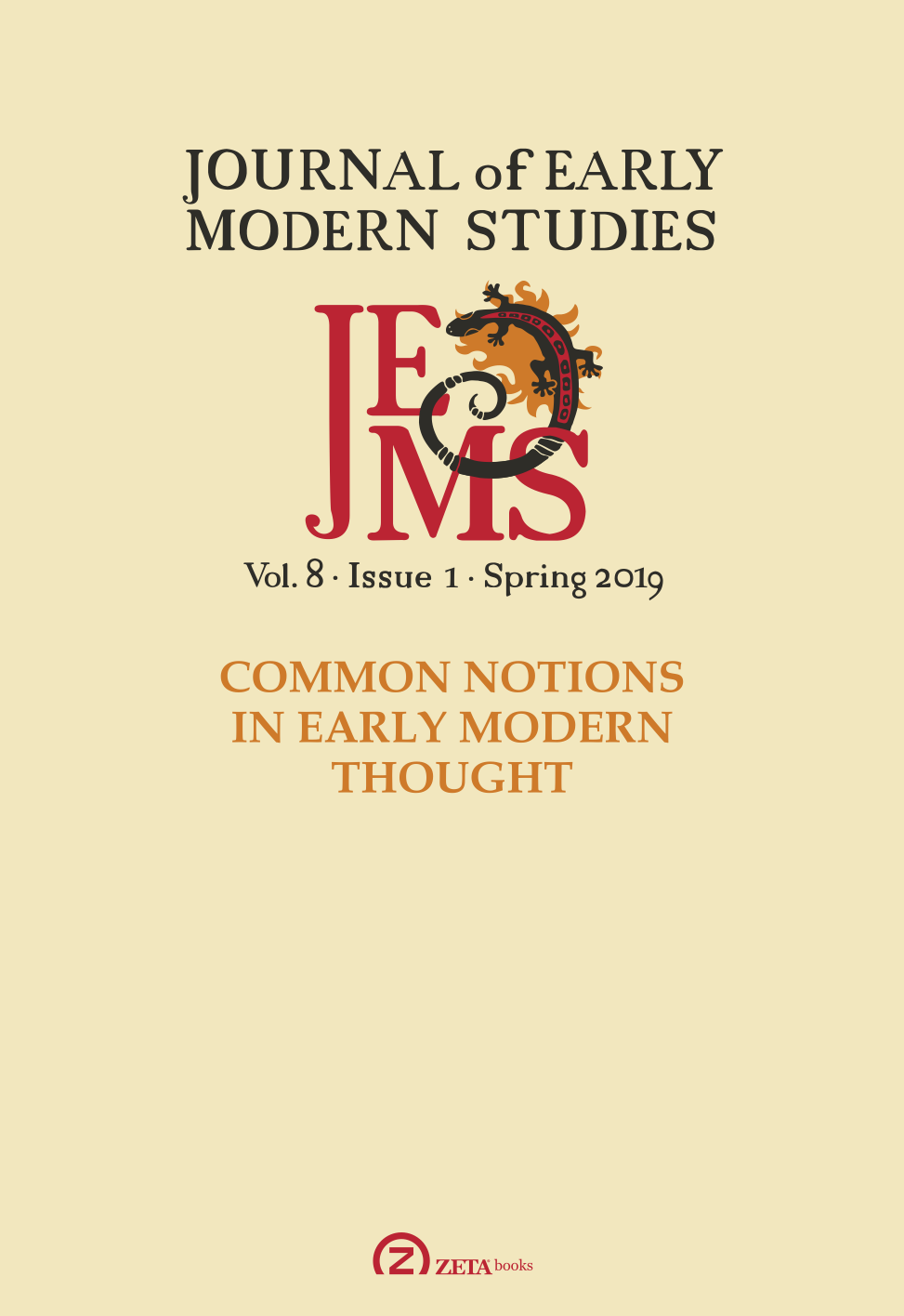“Deus vult aliquas esse certas notitias...”:
“Deus vult aliquas esse certas notitias...”: Epistemological Discussions in the Philosophy of the Early Modern Period
Author(s): Frank GünterSubject(s): Philosophy, Early Modern Philosophy
Published by: Zeta Books
Keywords: innate ideas; innate principles; a priori knowledge; Stoicism; Epicureanism; Platonism;
Summary/Abstract: The theory of notitiae naturales or κοιναὶ ἔννοιαι was part of the ancient Stoic epistemology. It served as precondition of any knowledge. Within the framework of the humanist rediscovery of ancient sources this theory became an important aspect of Philipp Melanchthon’s theological anthropology. This paper examines the polyvalent perspectives of the theory of notitiae naturales in Melanchthon’s philosophy and the role it played among Lutheran and Calvinist scholars, particularly regarding Rom 1: 19, where Paul stated some kind of a natural knowledge of God. The idea of notitiae communes or “common notions” as an a priori precondition of knowledge was widely spread both on the continent and in England in early modernity. It came to an end by John Locke’s critique in his Essay Concerning Human Understanding.
Journal: Journal of Early Modern Studies
- Issue Year: 8/2019
- Issue No: 1
- Page Range: 25-59
- Page Count: 35
- Language: English
- Content File-PDF

